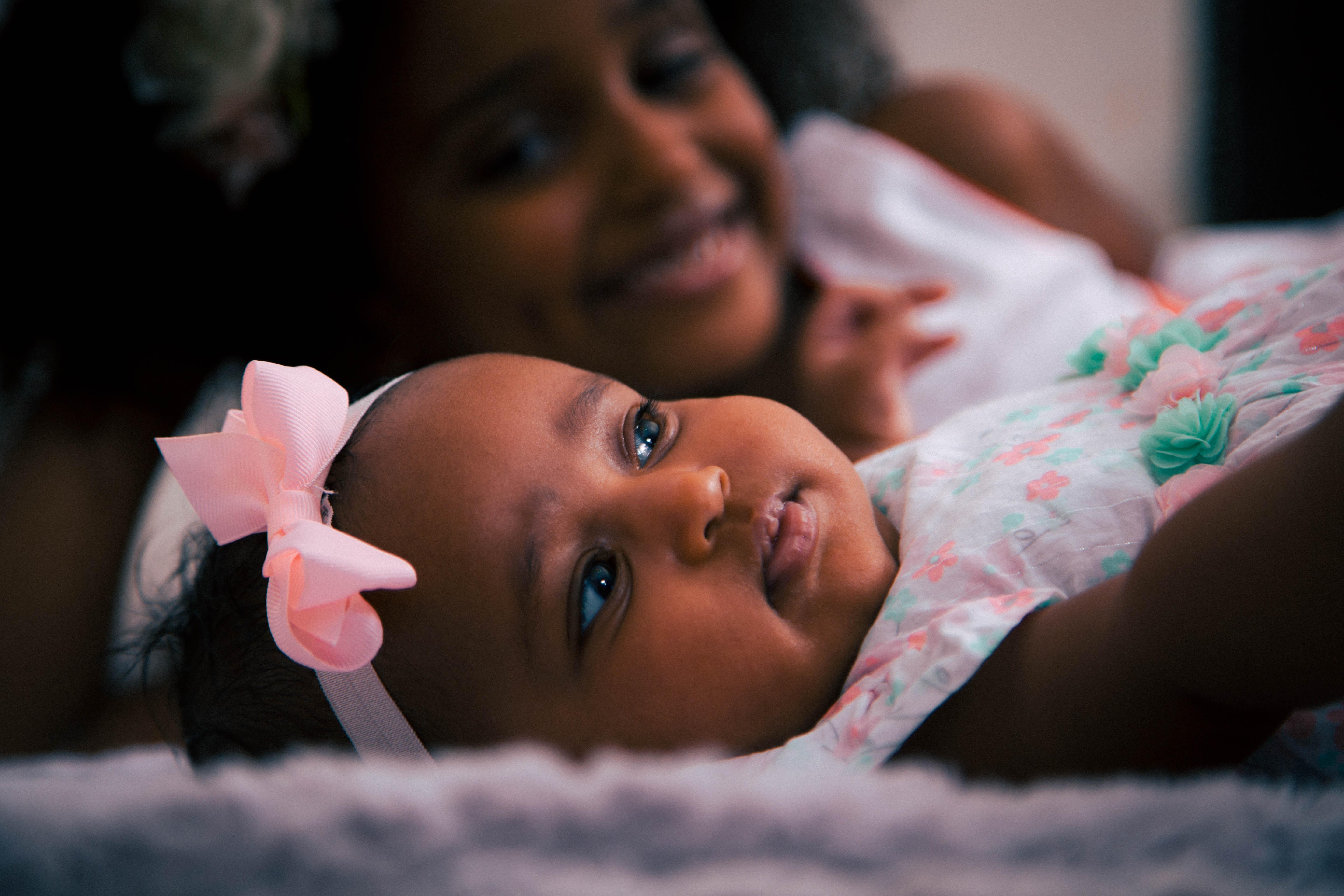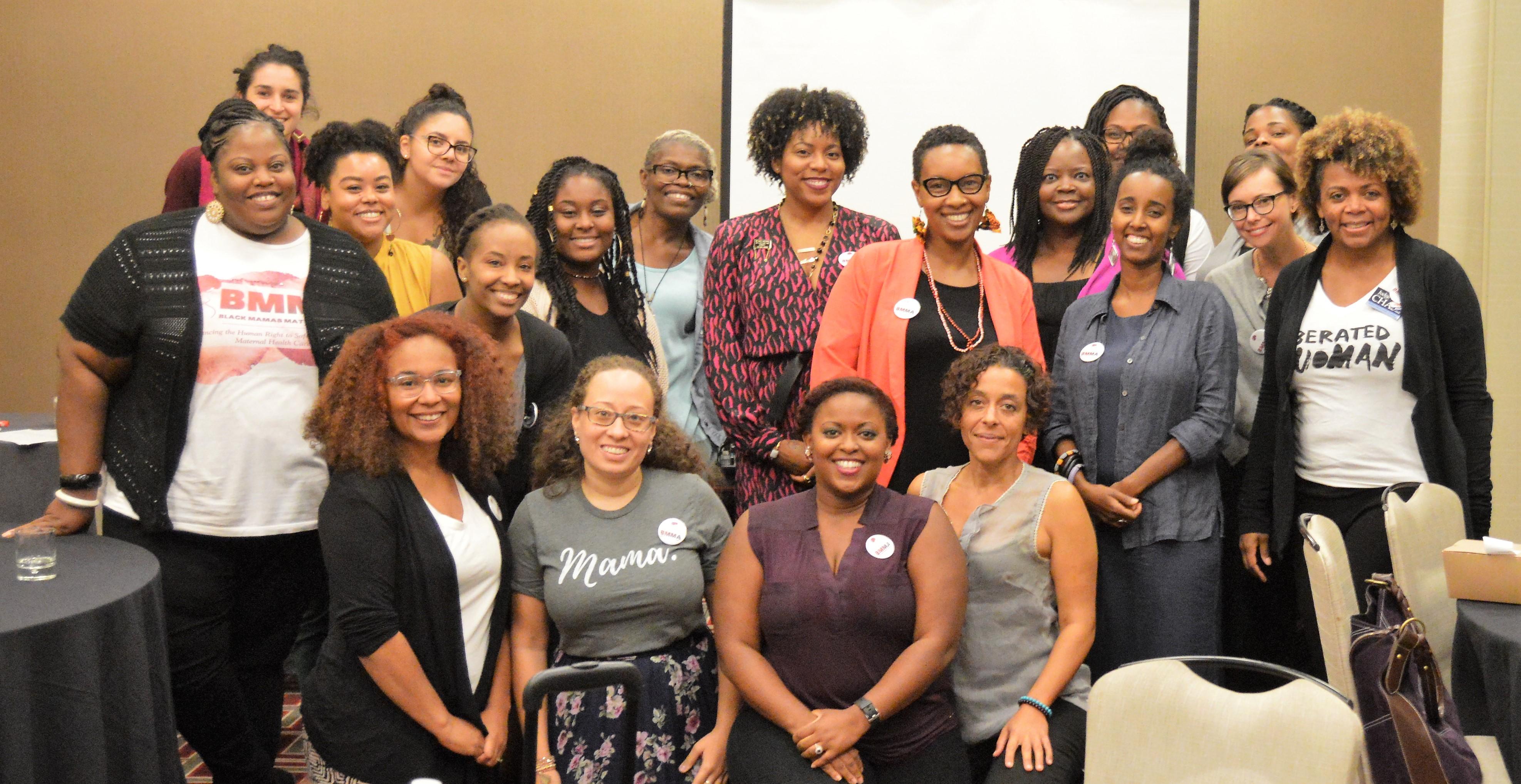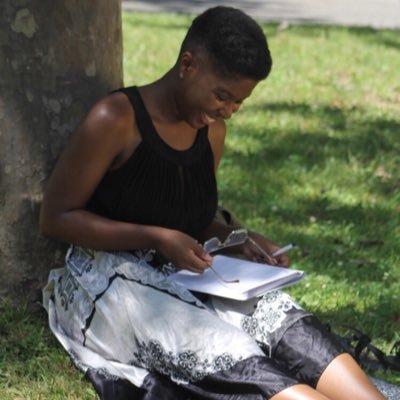This Is What All Black Female Entrepreneurs Need To Know About Maternal Health

Black women experience the highest infant mortality rates among any racial or ethnic group in the United States, according to a recent segment on CBS. This is a direct result of social and economic disparities in our current health care system. Thankfully, organizations, like Black Mamas Matter Alliance, advocate, drive research, build power and shift culture for Black maternal health, rights, and justice.
The founding Black Mamas Matter Alliance Steering Committee members, Angela Doyinsola Aina, Elizabeth Dawes Gay, Joia Crear-Perry, Kwajelyn Jackson, and Monica Simpson, have made massive achievements in pushing Black maternal health care forward. One of their latest achievements is founding the first annual Black Maternal Health Week from April 11th – 17th, which focused on amplifying the voices of Black mothers along with educating the masses about human rights, reproductive justice and birth justice.

The Black Mamas Matter Alliance also participated in Mama’s Day 2018 to recognize and highlight the contributions of mothers of color. This year’s theme focused on combating racial and gender-based violence that impacts Black mothers.
Her Agenda had the pleasure to speak with Elizabeth Dawes Gay, MPH, one of the founding Steering Committee members of Black Mamas Matter Alliance, to discuss Black Maternal Health Week, along with what entrepreneurs and career-driven millennials should keep in mind if they want to start a family in the future.
Her Agenda: Congratulations on the inaugural celebration of Black Maternal Health Week!
Elizabeth Dawes Gay: Thank you! Yeah, it’s amazing. It was more than we could’ve hoped for and the response was very positive.
Her Agenda: Yeah! I feel like you ladies had a great line up for Black Maternal Health Week.
Elizabeth Dawes Gay: We did! We had an opening and closing Twitter chat, three webinars and a closing Facebook live. There were also in-person events across the country with our collaborators and kindred partners in New York, DC, Maryland, Ohio, California, so there was a lot going on.
Her Agenda: Nice! Well, we know the purpose of Black Maternal Health Week was to focus on human rights, reproductive justice and birth justice but what does Black Maternal Health Week mean to you personally?
Elizabeth Dawes Gay: For me, Black Maternal Health Week really means amplifying leadership [behind the movement] and changing people’s minds about Black maternal health. A lot of people may not have known that there are amazing groups across the country doing work to advocate, change policies and provide high-quality holistic care to Black women. Black Maternal Health Week also means amplifying [the voices of] Black maternity care workers like doulas, midwives and OBGYN’s as well as [promoting] African immigrant women’s advocacy on maternal health.
Her Agenda: How do you feel post Black Maternal Health Week?
Elizabeth Dawes Gay: I feel really inspired, encouraged and energized. Planning Black Maternal Health Week took a lot of energy and time but it was well worth it. One of the things that happened after Black Maternal Health Week was that there was a resolution introduced by Congresswoman Elma Adams and Senator Kamala Harris. The resolution discussed some of the causes of dispersing maternal health outcomes, health inequities and the causes black maternal & infant mortality rates. It’s amazing to see [these] congressional leaders standing up for black mamas. Since then, we’ve also seen leadership from Congresswoman Robin Kelly, who introduced the MOMMA Act, a piece of legislation that [focuses] on the specific needs of Black woman and calls out the poor health outcomes seen among Black women.
Her Agenda: Speaking of women, Black women especially, are the fastest growing entrepreneurs in the United States. Many entrepreneurs are responsible for their own health insurance. What are some questions women entrepreneurs should ask their doctors and health care providers about maternal health to make sure they receive quality healthcare?
Elizabeth Dawes Gay: All providers are different so I think it’s helpful to do some research before you choose a doctor, especially when it comes to maternal health. [Also, consider the following]: Do I need a doctor/OBGYN or would a midwife be better given [my] health status? Do I need a doula? Would a doula be helpful to me? Do I have an advocate with me at labor and delivery or someone before to make sure that I’m all set for what happens when I bring the baby home? Do I have a doula or patient consultant to help me do my best as a mother as a new parent? We really need to make sure we are asking whatever questions that come to mind and pressing for answers that make sense. But I think we also need to make sure we’re in the best health we can be in using whatever resources we have. I’m an entrepreneur and run my own consulting company so I know what it’s like to be stressed, waiting on contracts and working 10-12 hours a day without taking a break, so self-care has become more important. The [best] thing we can do is to take care of ourselves.
Her Agenda: You mentioned midwives and doulas. Are they covered under most insurances or is that something that’s paid for out of pocket?
Elizabeth Dawes Gay: That’s a good question. In some states, doulas and midwives are covered and in other states, they’re not. I think there are only two or three states where doulas and midwives are actually covered. [If your insurance doesn’t cover it], you may have to find one that’s in a hospital but that’s not how most midwives practice, so there are quite a few challenges. This goes back to people having to do research to figure out what their insurance covers if they have the right insurance for what they want and if they’re going to have to pay out of pocket.
Her Agenda: Thank you for sharing that. Are there certain conversations current mompreneurs and working mothers should talk to their doctors and health care providers about regarding maternal health?
Elizabeth Dawes Gay: Mompreneurs and working mothers should talk to their providers about how to best manage stress and mental health. Entrepreneurs, you bring a new baby home and you want to start working but you may have to figure out how you’re going to balance taking care of the baby, taking care of your current kids and also running a business. But I think the conversation should be about how you can best manage your mental health, what signs you should look for if [depression] comes up, what you should be concerned about and then how to get support.
Her Agenda: I’m glad you mentioned mental health. May is Mental Health Awareness Month. Do you have any tips for mompreneurs and working mothers on how to prioritize mental health and how it relates to maternal health?
Elizabeth Dawes Gay: There’s a lot of evidence connecting mental health and stress to maternal health outcomes. There’s a stress response in the body that’s harmful to both mother and baby so practicing self-care, stress relief and looking after our mental health are things that can help us have better maternal health outcomes. So, doing things like yoga and [deep] breathing exercises help.
Her Agenda: You did an interview where you said you envision a world where Black moms have the right, respect and resources to thrive before, during and after pregnancy, how would you like to see that become a reality?
Elizabeth Dawes Gay: I would like for everyone to do what they can with whatever power they have. I think that everyone has a role to play and everyone can make a difference. For example, one of the things I wrote about a long time ago was an [initiative] called 100 Acts of Kindness Towards Pregnant Woman. It was about encouraging people to care for pregnant and parenting Black women: to be nice to them, to give them a seat on public transportation, to offer to give a massage or buy groceries for them among other things. The initiative was about treating other people with respect and dignity, which is something all of us can do. It reduces stress for people to live in a society where they’re respected and valued. So, I think people doing the smallest acts of kindness, along with introducing legislation that will guarantee everyone has access to quality holistic care, can help us achieve this goal.
Her Agenda: What are some additional ways that people, regardless of color, can support the Black maternal health movement?
Elizabeth Dawes Gay: I would say the best way for people to engage in the Black maternal health movement is to get connected to a local organization. Nationally and federally, we need action but most of this change is going to happen at the local level. That’s where people can have the most impact and see how they’re making a difference day to day.
Her Agenda: Okay great. Last, but not least, where can people find more information about Black Mamas Matter Alliance?
Elizabeth Dawes Gay: The best way for people to stay connected to Black Mamas Matter Alliance and our collaborators is to sign up for our mailing list and our website, blackmamasmatter.org. We have some great resources on our site such as a paper on holistic care for Black women and our webinar recordings from Black Maternal Health Week among other literature and reports. We also recently announced that we’re doing a Black Maternal Health Conference and Training Institute in December, so people are welcome to sign up for that once it’s available to the public. You can also follow us on social media @blkmamasmatter on Facebook, Twitter and Instagram.






